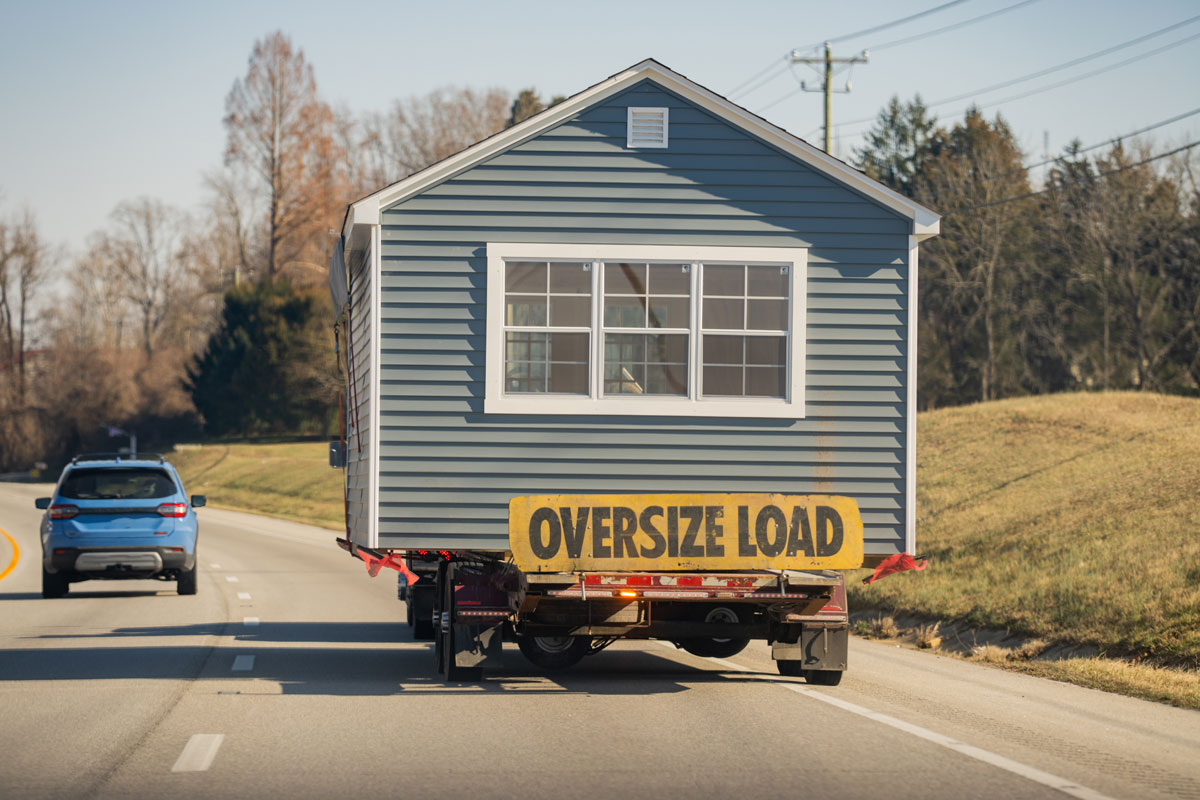Essential Laws and Regulations for Moving a Mobile Home
One of the draws of living in a mobile home is that it’s mobile — you can move it practically anywhere in the United States. As enticing as that is, there are many laws to consider before moving a mobile home.
Key Laws and Regulations to Consider
Local, state, and federal regulations dictate how, when, and where mobile homes can be moved.
Local Zoning and Land Use Regulations
Some areas are less friendly toward mobile homes. City authorities may limit where a unit can be placed or have strict rules on the size and condition of the house.
State and Federal Transportation Regulations
You must obtain a moving permit from your county tax office to move a mobile home. The county won’t issue a permit unless all taxes owed on the home are paid. The permit should be displayed on a window of the unit and given to the destination municipality.
If your home is older or in poor condition, it may not meet road safety standards. A pre-move inspection and updates may be necessary.
In every state, you need a permit to move a home deemed an oversized or overweight load. Rear and front escorts may be mandatory.
Permits restrict when a unit can be transported. They typically can only travel during daylight hours. There are also blackout dates on major holidays. Some states prohibit travel near major cities during rush hour periods.
In addition, professional mobile home movers must be registered with the Federal Motor Carrier Safety Administration. Under federal regulation 24 CFR § 3285.902, movers may confirm that the transportation equipment and unit can be routed at the new site and that all transportation permits required by local authorities were obtained prior to moving a unit.
Federal regulation 24 CFR § 3285.902 also recommends informing local authorities and preparing the site before moving. Check with the county to confirm what’s required.
Building and Safety Codes
Federal regulations may bar you from reaching your desired destination. The Department of Housing and Urban Development (HUD) has safety standards for manufactured homes. Many came into effect in 1976, and they’re followed by most local jurisdictions. Mobile homes built before 1976 may not be moveable because they don’t meet HUD’s standards. HUD has codes for snow, seismic activity, and wind.
Michigan, for example, does not have a mobile home age limit, but the unit must be inspected for structural integrity. However, each municipality has its own regulations. If it’s in poor condition, it may have to be updated to meet safety standards.
Permits and Fees
Besides moving, transportation, and zoning permits, expect to apply for a range of permits to site your unit. Depending on the municipality, you may need permits for electrical, mechanical, and plumbing installations — which come with fees.
Utility Disconnection and Reconnection Requirements
Notify the utility companies several weeks in advance that you’ll be moving and will no longer need their services. Last-minute disconnects could mean a fine.
Some moving companies assist with disconnection and reconnection. If they don’t, you’ll need to pay a professional at both locations. At the new site, the unit may need to pass an inspection before the utility companies initiate the connection.
Insurance and Liability Coverage
If you use a professional moving company, you’ll need to purchase liability coverage. You might want to purchase additional coverage if your policy does not cover in-transit incidents.
Steps to Ensure Compliance
Running awry of compliance requirements can create enormous inconvenience and result in expensive consequences. In order to ensure your change goes smoothly, make sure you understand the laws to consider before moving a mobile home and get help when needed.
Research Local and State Laws
Scope out the mobile home moving laws of your destination. If you fail to, you’re setting yourself up for a headache and fines. Most research on mobile home relocation regulations can be conducted online, but usually, the simplest method is calling or emailing the states and municipalities at each end of the relocation.
Consult Professionals
When in doubt about legal requirements for moving a mobile home, consult with real estate and moving professionals. They can help ensure that you have covered all the bases. You can also reach out to a state or local manufactured home association.

Get Help With Mobile Home Removal
Relocating a mobile home is a legally trying and costly endeavor. There are permits to pay for, potential upgrades to make to ensure it meets safety standards, and an array of site restrictions and mobile home moving laws.
By taking time to understand the requirements and plan for your move, you can avoid running into trouble and enjoy a safe, predictable relocation.
You might opt to remove and donate your mobile home rather than move it. Learn how it works, and contact us to learn about our hassle-free mobile home removal services.
FAQ
What Permits Are Required to Move a Mobile Home?
You need a moving permit from your county and a permit to transport on your state’s roads. If moving out of state, you must obtain a permit for each state.
How Do Local Zoning Laws Affect Moving a Mobile Home?
Zoning laws will impact the site selection at your desired destination. A zoning permit will be required if you want to place a unit on private land.
Are There Federal Regulations for Transporting a Mobile Home?
Professional movers must be registered with the Federal Motor Carrier Safety Administration and follow guidelines under federal regulation 24 CFR § 3285.902.
What Should I Do if I Encounter Legal Issues During the Move?
You may need to contact an attorney specializing in mobile homes.
How Can I Ensure My Mobile Home Is Compliant With Safety Codes at the New Location?
The county will inspect the unit during the planning and zoning permit process.


